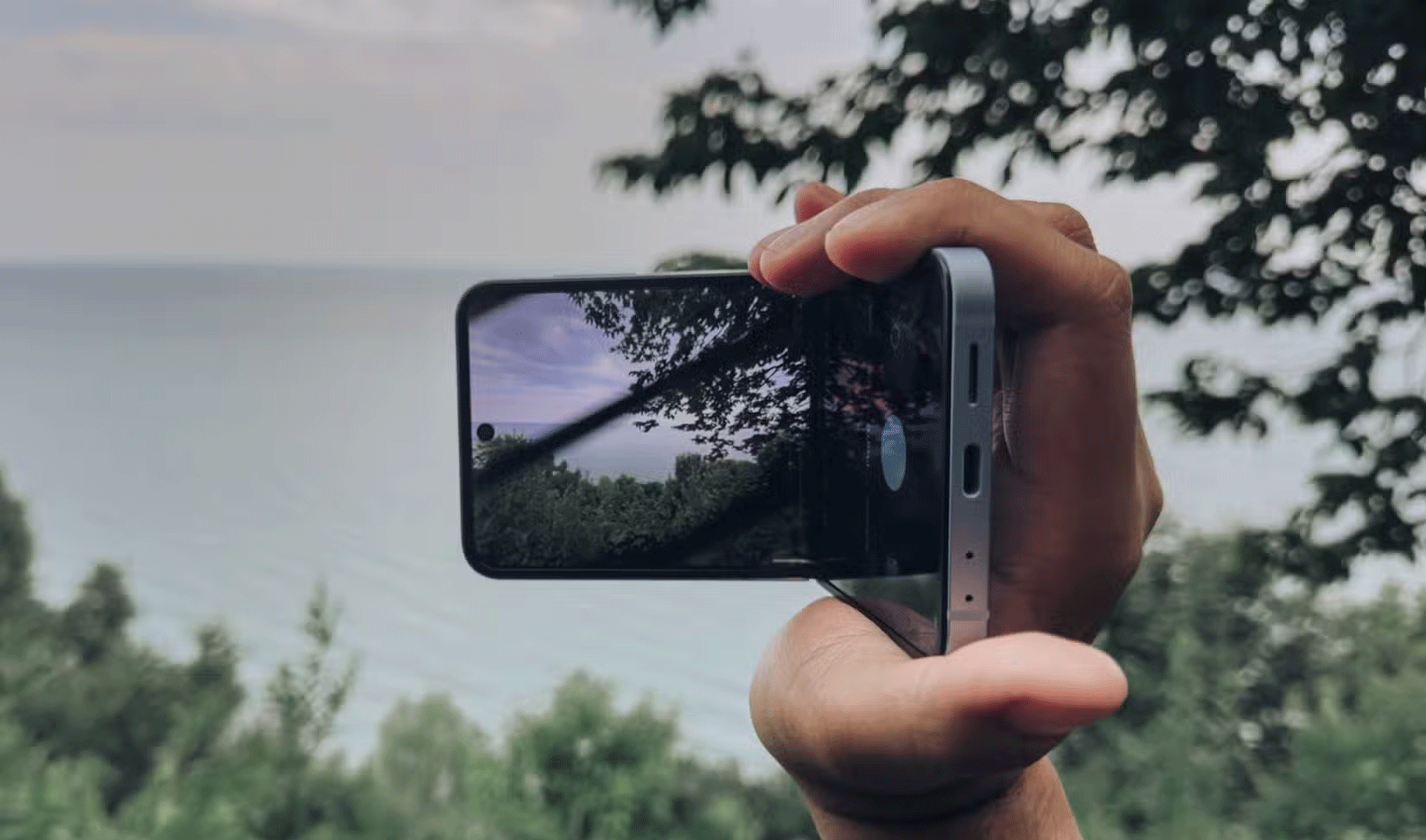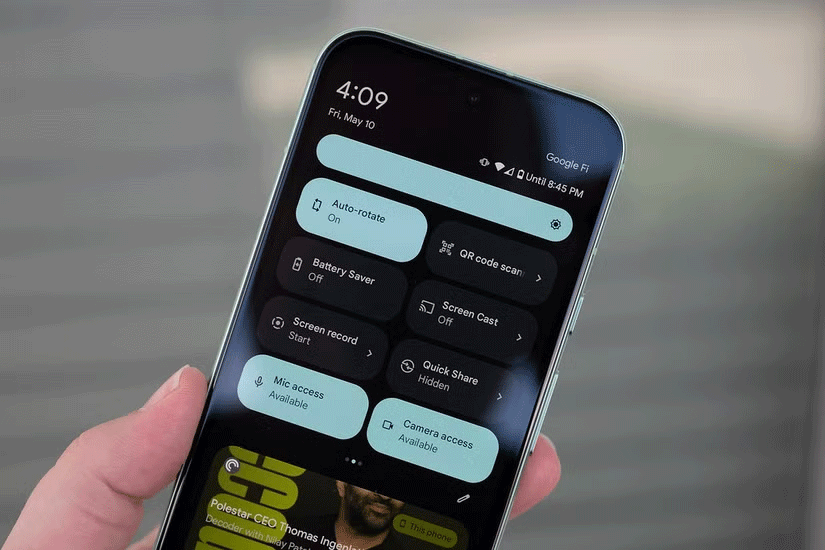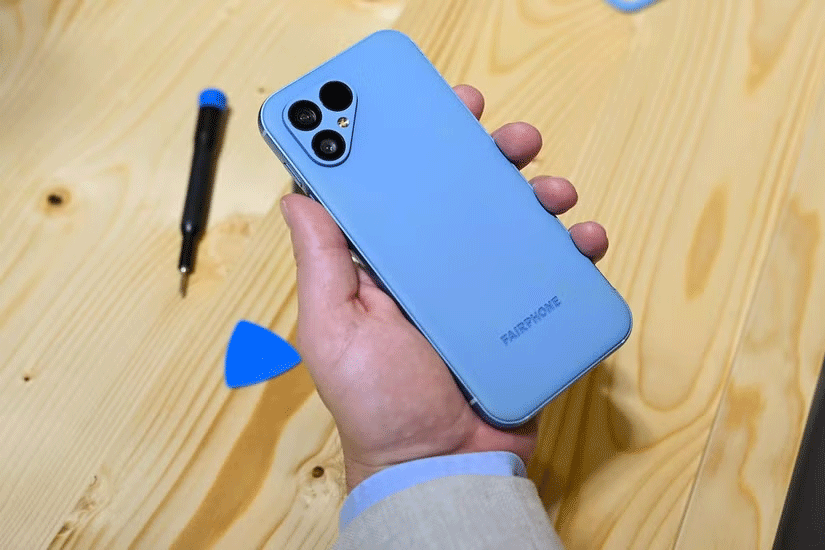Here's What Android Phone Makers Do Better Than Apple!
Whether you use an iPhone or an Android phone, there are always areas where one has the edge over the other. From customization to flexibility, here's what Android phone makers do better than Apple - making them the top choice for many users.
1. Quickly adopt new technology

Android phone makers were quick to adopt new technology. One thing that set the first Android phone, the HTC Dream, apart from the original iPhone was its expandable memory via microSD cards, an affordable way to add more storage to a smartphone – something Apple had never considered for its devices. Soon after, Google launched the Nexus S with NFC, while Apple wouldn't be able to do so until four years later with the iPhone 6.
Android OEMs were also early adopters of other user-centric advancements. While HTC led the way with its multi-camera system, Samsung's Galaxy S6 introduced wireless charging. Razer introduced the 120Hz high-refresh-rate display we all love today in 2017. Sony launched the Xperia Z, an IP57-rated water-resistant device, in 2013, three years before Apple launched the IP67-rated iPhone 7.
Google also set the trend with the Nexus 5X, quickly switching to USB-C — a move that other Android manufacturers soon followed. EU regulations forced Apple to abandon its proprietary Lightning port in favor of USB-C by 2023, bringing new capabilities to the iPhone 15 and later models.
Many also believe that Apple was the first to introduce a fingerprint reader with the Touch ID sensor in 2013. However, Motorola did it with the Atrix 4G in 2011, followed by the HTC One Max in 2013. Android manufacturers have built on this by improving the in-display fingerprint scanner to be more sophisticated, invisible to the naked eye but still working perfectly.
Other innovations that have become standard on smartphones since then also came from Android manufacturers. For example, the Oppo Find 7 was the first phone to introduce fast charging, while Samsung introduced a unique PowerShare feature that could wirelessly charge other devices.
2. They cater to all types of users

As of 2024, Android is the market leader, accounting for 72% of the global smartphone market. This dominance is largely due to Android manufacturers catering to a wide range of users. While brands like Samsung and Google, with their Galaxy S and Pixel lines, produce flagship phones, they also offer more affordable options, like the Samsung Galaxy A series and models like the Pixel 8a and 7a.
Aside from the variety of hardware and prices, the democratic nature of the Android ecosystem means that manufacturers compete to innovate with their devices. Samsung, for example, has introduced a very attractive alternative to more conventional slab phones with its Galaxy Flip and Z Fold devices. What was considered a novelty just a few years ago, today, foldable phones have proven their usefulness.
3. Custom Android Interface

The open source nature of Android allows manufacturers to modify and install their own version of Android with unique features, interfaces and experiences that stock Android may not offer. This way, end users have a wide range of hardware and software options.
For example, Google's Pixel phones are great if you like the stock Android experience. Samsung, on the other hand, uses its own custom user interface, One UI, for all of its Galaxy devices. So while two Google and Samsung devices may run the same version of Android, the user experience can feel dramatically different.
4. Repairability

Traditionally, Android phones have been easier to repair. For example, if your device started showing signs of battery degradation, you could remove the back cover and replace the battery yourself. That changed when phone manufacturers adopted sealed designs to increase water and dust resistance, making repairs more cumbersome.
However, some Android manufacturers like HMD and Fairphone have taken a DIY approach by designing devices that allow users to easily swap out parts and perform repairs. Even Android devices that score low on the repairability scale—like the Pixel 8 series—can still be repaired at third-party shops without running into the notorious component pairing issues that plague Apple devices.
As the smartphone industry continues to evolve, Android manufacturers are likely to experiment and innovate more. At the same time, Apple will stick to its strategy of producing powerful devices with more advanced processors. However, a common trend we can see from all smartphone manufacturers is to prioritize AI features to enhance the user experience.
You should read it
- Apple considered the iTunes application for Android
- How to use FaceTime on Android?
- 5 things you can't do on iOS but Android is carefree
- How to use Apple Watch with an Android phone
- 5 'absolute' things should not be done if you first use an Android phone
- Apple launched a support website to switch from Android to iOS
 How to fix the error of not being able to open JPG files in Windows
How to fix the error of not being able to open JPG files in Windows 15 Perfect Parts and Accessories for a PC Setup
15 Perfect Parts and Accessories for a PC Setup Google just confirmed the release date of Android 16
Google just confirmed the release date of Android 16 Why VPNs Are Getting Detected More Than Ever
Why VPNs Are Getting Detected More Than Ever How to Share Your Exact Location with Google Plus Codes
How to Share Your Exact Location with Google Plus Codes Why does Windows operating system have such a bad reputation?
Why does Windows operating system have such a bad reputation?